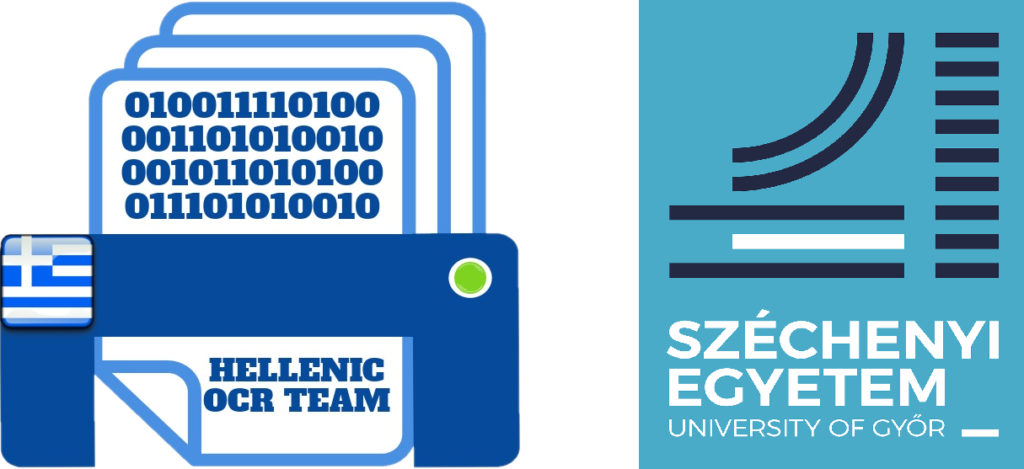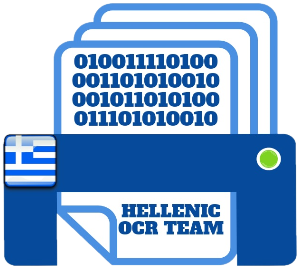
CALL FOR PAPERS – UPDATE
4th Global Conference on Parliamentary Studies
The organizing committee of the 4th Global Conference on Parliamentary Studies invites submissions of papers for a unique event to be held in Athens, Greece, on Friday, 13 June 2025.
Conference topic: Reinventing Democracy for the 21st Century
Location: History Museum of the University of Athens (http://www.historymuseum.uoa.gr), located beneath the iconic Acropolis, Athens, Greece
Organizers: Hellenic OCR Team and Széchenyi István University, in cooperation with International Journal of Parliamentary Studies and Brill
Conference Chairs: Dr. Fotis Fitsilis, Hellenic Parliament; Prof. Zsolt Szabó, Széchenyi István University, Károli Gáspár University of the Reformed Church in Hungary
Introduction
This international parliamentary conference in Athens, the birthplace of democracy, is an unmissable opportunity for academics, researchers, and practitioners eager to explore and discuss how technology, media, and international dynamics intersect with democratic practices within parliamentary institutions in the 21st century. Experience cutting-edge dialogue and discover Athens’ cultural heritage, a city that has shaped the principles of democracy throughout history.
The conference
Set in Athens, the cradle of democracy, the 4th Global Conference on Parliamentary Studies is a unique gathering for discussing how democracy can evolve to meet the demands of the 21st century. With rapid technological change, the rise of artificial intelligence, the spread of disinformation and complex geopolitical realities, democratic institutions must adapt to remain resilient and effective. This conference invites leading parliamentary experts from around the world to examine the intersection of technology, policy and societal change within parliaments, and to propose innovative solutions for reinforcing democratic principles. Participants will gain new insights and promote collaborations in a unique setting that embodies democratic heritage and inspiration.
In an era marked by rapid technological advancements and global political shifts, democracy faces multifaceted challenges and opportunities. The 4th Global Conference on Parliamentary Studies seeks to address the evolving landscape of democracy in the 21st century, emphasizing how emerging technologies, geopolitical tensions and societal changes shape parliamentary practices. Key themes will include the transformation of parliaments into digital bodies, the influence of artificial intelligence on policymaking, the role of social media and the metaverse in civic engagement and the proliferation of disinformation.
In particular, the conference aims to strengthen dialogue on sustaining democratic resilience, maintaining transparency and trust in an age of AI, while exploring and investigating the intersection of technology and parliamentary governance. Sessions will also cover strategies for combating disinformation and ensuring that technological progress enhances rather than undermines democratic principles.
Conference main themes
The conference organizers invite scholars and practitioners from around the world to submit abstracts related to the following themes and associated topics:
The evolution of the digital parliament
- The transition to digital parliamentary systems: benefits, challenges and the future of electronic governance.
- The potential and risks of incorporating AI into representative institutions, establishing standards and ensuring transparency.
- Strategies for leveraging digital tools to improve institutional efficiency and public engagement.
Media and disinformation in the digital age
- Technological approaches to identify and counteract disinformation, enhancing public trust and media literacy.
- Parliaments and the role of social media platforms in mobilizing or polarizing the public, algorithmic influences and regulations to ensure fair discourse.
- The metaverse as an emerging space for democratic engagement: opportunities, challenges, and regulatory considerations.
Geopolitical shifts and democratic stability
- Strategies for upholding democratic norms within parliaments in the face of global challenges and shifting power dynamics.
- Inter-parliamentary cooperation and the influence of international conflicts and alliances on democratic processes and resilience.
- Approaches to strengthening collaboration between democratic institutions to safeguard against external and internal threats.
The organizers also encourage submissions on related topics that contribute to the development of parliamentary practices and the evolution of democratic systems.
Call for Papers
We invite parliamentary scholars, researchers and practitioners to submit their paper abstracts on topics related to the conference title and aforementioned themes. Submissions should explore, among others, innovative approaches to strengthen parliamentary institutions, the role of technology in enhancing or challenging democracy and effective strategies to counteract disinformation. Papers should have parliaments as democracy’s supreme institutions at the center of their focus.
Submissions are welcome from scholars at all career stages (including PhD students and post-doctoral researchers), as well as practitioners with relevant academic backgrounds such as law, political science, social sciences, informatics and engineering. The abstracts will be reviewed by the conference’s organizing committee, comprising members of the Hellenic OCR Team and Széchenyi István University. Abstracts should be submitted through this link: https://forms.gle/Mm7DbXFn9y87FBkU6
Fee and organization
There is no registration fee for the conference, which will be held in person. Participants are responsible for their own travel and accommodation expenses. Scholars interested in attending the conference without paper presentation are also welcome to apply during this period. However, the organizers reserve the right to close registration for those early due to capacity limitations, with priority given to those presenting papers.
Paper and abstract publication
A book of abstracts will be created and selected papers will be considered for publication in the International Journal of Parliamentary Studies, https://brill.com/view/journals/parl/parl-overview.xml
Program
The one-day international parliamentary conference will feature a comprehensive program that includes both a plenary session and parallel panel discussions on a variety of topics relevant to parliamentary studies. The event will begin with a plenary session, while parallel panels will take place throughout the day, each concluding with a moderated discussion for engagement and knowledge sharing. Oral presentations will be 15 minutes followed by 5-minute discussion. The conference’s language is English.
Social program
Guided tours of the Hellenic Parliament, the History Museum of the University of Athens and key sites of both ancient and modern Athens will be offered. These tours will highlight the city’s rich legacy as a beacon of democracy and provide participants with a deeper appreciation of its historical and cultural significance. The scheduling of these tours will be announced closer to the event.
Submission guidelines
Abstract submission must contain the following:
- Name of the author, institution, e-mail address, telephone number, short biography (50 words)
- Title and abstract of the paper [do not include personal information in the abstract] (300 words)
- Topic of the paper for the purpose of organization of panels
- Submission portal: https://forms.gle/Mm7DbXFn9y87FBkU6
Important dates
- Abstract submission: 28 February 2025
- Notification of acceptance: Between 1-7 April 2025
- Registration: [both paper and simple conference attendance]: 8 April – 31 May 2025
- Full paper submission: [upon acceptance] 7 June 2025
- Conference date: 13 June 2025
Contact and registration information
- Fotis Fitsilis, fitsilisf@parliament.gr
- Zsolt Szabó, szabo.zsolt.dr@sze.hu
Scientific committee
- Fotis Fitsilis, Hellenic Parliament, Greece
- Zsolt Szabó, Széchenyi István University, Károli Gáspár University of the Reformed Church, Hungary
- Peter Smuk, Széchenyi István University, Hungary
- Evangelos Kalampokis, University of Macedonia, Greece
- Spyridon Vlachopoulos, University of Athens, Greece
- George Mikros, Hamad Bin Khalifa University, Qatar
- Juan de Dios Cincunegui, Universidad Austral, Argentina
- Stéphane Gagnon, Université du Québec en Outaouais, Canada
- Iasonas Lambrianou, University of Cyprus, Cyprus
